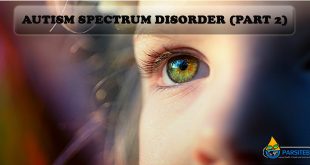Male fertility problems
What are fertility problems?
Infertility can be defined as the failure to achieve pregnancy after regular unprotected sex (without the use of any contraception) for at least a year.
‘Primary’ infertility means failure to achieve a first pregnancy, ‘secondary’ infertility means failure to achieve a subsequent pregnancy.
Primary infertility is an extremely common problem, affecting more than one in seven (15 per cent) couples attempting their first pregnancy. Among those experiencing difficulty with conception, a male fertility problem is considered important in around 40 per cent of couples. In 15 per cent of couples it will be solely a male fertility problem and in around 25 per cent, there will be a problem in both partners.
Why do men get fertility problems?
There are several causes of fertility problems in men. They include:
obstructive problems (blockages in sperm-carrying tubes)
testicular injury and disease
varicocele
sperm disorders
genetic disorders
problems with erection) and ejaculation
hormonal problems
general medical disorders that reduce fertility
drugs that reduce fertility
environmental toxins and radiation.
Obstructive problems
A blockage in a sperm-carrying tubes has many potential causes. The most common are outlined below.
Groin surgery (including hernia repair and fixation of undescended testicles).
Trauma to the scrotum sack covering the testicles (even fairly minor sporting injuries).
Infection (particularly chlamydia, gonorrhoea and tuberculosis).
Previous vasectomy (a form of contraception that involves tying the sperm-carrying tubes).
Some men have congenital (present at birth) absence of the vas deferens on one or both sides. The vas deferens is the tube that conducts the testicular component of semen to the urethra, which then carries semen through the penis to the outside world.
About 10 per cent of men with an obstructive cause for their infertility will have this problem. The seminal vesicles (where other semen components are made) are often absent too.
Another rare obstructive cause is Berry-Perkins-Young syndrome, in which sufferers have a chronic chest disease (bronchiectasis), chronic sinusitis and obstructive infertility.
Testicular injury and disease
A blow to the testicles, which may occur in sport or during a fight, can cause swelling of the testicles, or bleeding in or around them. This probably causes the blood supply to the testicles to fail, resulting in permanent damage to the sperm production mechanism.
Torsion of the testicles (twisting of a testicle on its cord) can have a similar effect if it is not treated very quickly with surgery. Viral infections can cause inflammation of the testicles (orchitis, which usually appears as painful swelling of the testicles) and failure of sperm production.
Mumps is the best-known cause, but is not the only one. Mumps will only affect fertility if it causes orchitis and, even then, only rarely. Undescended testicles (cryptorchidism) are another common cause of failure of sperm production. Male infants and children are routinely examined to identify this problem, as future fertility can only be preserved if surgical treatment to fix the testicles in the scrotum is performed in early childhood. Even surgery in infancy does not guarantee future fertility.
Varicocele
A varicocele is a dilation of the testicular veins in the spermatic cord that leads from the testicles to the abdomen. The role of this condition in causing infertility is uncertain and highly controversial. Varicoceles occur in 15-20 per cent of fertile men and 30 to 40 per cent of men with fertility problems. They can occur on either or both sides, but are far more common on the left.
They are best identified when the man is standing up and are often described as feeling like ‘a bag of worms’. Experts suggest that the varicocele either heats up the testicles or impairs their blood supply resulting in a build-up of body waste products, thus affecting fertility. The co-existence of other risk factors, such as smoking, with varicocele seems to have a greater effect on the risk of infertility.
Sperm disorders
Disorders of sperm numbers, movement and shape are common in men with infertility. Prolonged abstinence from ejaculation can affect sperm motility. Modern techniques can identify structural and biochemical abnormalities within the individual sperm.
Genetic disorders
Problems with chromosomes (packages of genetic material) occur in about 2 to 20 per cent of infertile men and can affect their fertility in two ways:
chromosome disorders can affect the development of the testicles. These are usually disorders of the sex chromosomes, by far the most common being Klinefelter’s syndrome. In this disorder, instead of having 46 chromosomes, including one X and one Y chromosome (46XY), the man has an additional X chromosome (47XXY).
chromosome abnormalities can disrupt cell division and sperm production.
Problems with erection and ejaculation
Problems with sex are the principal cause of infertility in about 5% of couples. This can be due to:
erectile dysfunction (inability to attain or maintain an erection adequate for intercourse)
premature ejaculation
failure to ejaculate
inability to achieve vaginal penetration for other reasons.
Hormonal problems
Testosterone deficiency can reduce fertility and may be caused by problems with testicular testosterone production, or problems with the pituitary gland or hypothalamus in the brain, which control testosterone production. Overproduction of prolactin (hyperprolactinaemia), a hormone produced by the pituitary gland, may also reduce fertility.
General medical disorders that reduce fertility
There are several conditions that may reduce fertility:
Fever: influenza (flu), pneumonia, or even a severe cold can cause a high fever, which will adversely affect sperm production and quality. These changes usually recover over a few weeks.
Diabetes: in the longer term, diabetes can cause problems with erection and ejaculation through causing damage to the function of the ‘automatic nervous system’.
High blood pressure: hypertension (high blood pressure) can cause problems with erection, either directly or as a side effect of medication.
Coronary artery disease: coronary artery disease can cause problems with erection. This could be due to generalised hardening of the arteries, in the penis as well as the heart, or to drugs used in the treatment of heart problems.
Neurological disorders: multiple sclerosis, stroke, and spinal cord injury and disease can all cause problems with erection and ejaculation.
Kidney disease: chronic renal failure, which results in a build up of waste products in the body, can adversely affect sperm quality and fertility. It can also cause erection problems.
Cancer: cancers that affect the genital tract or endocrine (hormone-producing) systems may directly reduce fertility. Otherwise, drugs and radiation used to treat cancer may severely reduce sperm production or even stop it altogether. Stress (see below) may also have an effect.
Alcoholism: alcohol is toxic to sperm and overuse of alcohol can reduce sperm quality and fertility.
Stress: stress causes several hormonal changes in the body that can affect fertility. Stress can have many causes, including anxiety over fertility problems.
Drugs that reduce fertility
Many drugs, both prescribed and those used recreationally, can reduce fertility. Any fertility concerns related to prescribed drugs should be discussed with your GP – do not just stop taking them yourself.
Recreational drugs that may affect fertility
Recreational drug Effect
Alcohol Reduces sperm count and quality
Tobacco May reduce sperm motility
Marijuana May affect hormone production
Opiates (heroin, morphine) Affect hormone production
Anabolic steriods Affect hormone production
Prescribed drugs that may affect fertility
Prescribed drug Effect Main use
Amiodarone Inflammation of the testicles and epididymis (epididymo-orchitis) leading to problems with sperm production Abnormal heart rhythm
Cancer chemotherapies May severely reduce sperm count, quality and motility. Effects may be permanent Cancer
Cimetidine Affects hormone production and reduces sperm count Peptic ulcer and acid reflux disease, indigestion
Colchicine May severely reduce sperm count Gout
Digoxin Affects hormone production Heart failure; abnormal heart rhythm
Erythromycin May reduce sperm count Chest infections
Gentamicin Reduces sperm count Bacterial infections
Hormonal therapies May disrupt other hormone production Various
Ketoconazole Reduces sperm count Fungal infections
Methotrexate Reduces sperm count Some cancers; arthritis
Nitrofurantoin Reduces sperm count Urinary tract infection
Phenytoin Reduces sperm quality and motility Epilepsy
Spironolactone Affects hormone production Fluid retention
Sulphasalazine Reduces sperm count and quality Ulcerative colitis
Environmental toxins and radiation
Several media reports have highlighted research studies showing that sperm counts are falling and that male fertility is declining, possibly because of environmental pollution. A similar number of studies have shown no change whatsoever, but these do not make such good headlines and often fail to be reported in the media.
Is male fertility in decline? Because evidence exists both one way and the other, the answer must be ‘maybe’! One thing is certain, and that is that many more environmental toxins that might affect fertility exist now than 50 years ago.
Environmental toxins that may affect fertility
Potential toxin Origin Effect
Alkylphenols Industrial and domestic detergents Hormonal disrupter
Lacquers to coat foods; dental treatments Lacquers to coat foods; dental treatments Hormonal disrupter
Dioxins Paper production; transformer disposal Hormonal disrupter
Organochlorine pesticides (Lindane, DDT, etc,) Lindane used on cereals, soft fruits, cabbage Hormonal disrupter
Phthalates Some soya products Hormonal disrupter, testicular toxin
Phyto-oestrogens (found in certain types of plant products) Some soya products Hormonal disrupter
Vinclozolin Hormonal disrupter, testicular toxin Hormonal disrupter
When should I seek advice?
Although fertility is affected by many factors, particular a woman’s age, the chance of a young couple conceiving following regular intercourse is about one in five (20 per cent) in each menstrual cycle. The odds remain the same in each cycle and you are not guaranteed conception after five menstrual cycles. However, most couples can expect to conceive within six months.
Do not be too concerned if you fail to conceive after only two or three of your partner’s menstrual cycles, even if friends seem to conceive straight away.
Although it is affected by many factors, particular a woman’s age, the chance of a young couple conceiving following regular intercourse is about one in five (20 per cent) in each menstrual cycle. The odds remain the same in each cycle and, although it might sound likely, a couple are not guaranteed conception after five menstrual cycles. However, most couples can expect to conceive within six months.
Seeking some initial advice after six months or so is reasonable and you should not feel that you must wait for a year. Most doctors are very understanding and may not insist on a year’s failure to conceive, just in order to fulfill an arbitrary medical definition.
How are the causes of fertility problems diagnosed?
The first place to seek advice regarding a conception problem is your GP. You and your partner should be assessed as a couple, at the same time, rather than one after the other. It is very important not to attach blame to yourself or your partner, even if one of you has an obvious problem.
Both of you are reasonably likely to contribute problems that affect your chance of conception. Trying to conceive and undergoing medical assessment is stressful enough without putting additional strain on your relationship through mutual antagonism.
What else could it be?
n some couples, no cause can be found for their failure to conceive, despite very intensive investigation. Both partners seem quite healthy, but they simply do not conceive together. This can be very distressing and seem quite incomprehensible, but it does happen reasonably frequently.
Self-help
There are a number of things that men can do to help preserve and promote their fertility.
Eat a healthy, balanced diet.
Take regular exercise.
Try to maintain their weight in the ideal range.
Don’t smoke.
Keep alcohol consumption within recommended limits.
Don’t use recreational drugs.
Try to reduce stress.
Two other actions have been suggested. They may improve sperm quality parameters, but evidence that they improve the successful pregnancy rate is poor or non-existent.
Avoid tight underwear or wear boxer shorts – the evidence for benefit from this is very poor. One study from the Netherlands showed that tight leather trousers and tight plastic underpants affected sperm quality when worn together, but not alone! Y-fronts probably do not make much difference.
Cold showers or scrotal soaks – while these might take the mind off fertility concerns for a few moments, there is no evidence of their effectiveness.
What can your doctor do?
Your GP should be able to identify many of the common causes of male fertility problems, or refer you to a fertility specialist (usually a urologist, gynaecologist or specialist in reproductive medicine) for advice.
Surgery, including vasectomy reversal, may be helpful for some men with obstructive problems.
However, success is not guaranteed, and assisted conception techniques, including in-vitro fertilisation (‘test-tube’ babies or IVF), may offer a better chance of a pregnancy.
Although assessment and initial investigation is available within the NHS, vasectomy reversal, assisted conception and some other fertility treatments are either not available or have very limited availability in most health districts. Private treatment may cost several thousand pounds, again with no guarantee of success.
Prognosis
Sadly, most disorders affecting sperm quality and production either cannot be cured or do not respond well to treatment. However, assisted conception techniques, including use of donated sperm, can help affected couples achieve a successful pregnancy, even if there are very severe sperm production problems.
 Parsi Teb Physical and Mental Health Journal
Parsi Teb Physical and Mental Health Journal 



